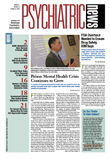The “clinical significance” criteria for major depression—defined in important community epidemiologic surveys as a history of receiving care for depression or significant interference with life or usual activities—may cause rates of depression for African Americans to be underestimated in those surveys.
That was the finding from an analysis of data from the 1999 National Health Interview Survey for a nationally representative community sample of more than 30,000 adults administered the depression module of the composite International Diagnostic Interview-Short Form.
In that analysis researchers found that there were no differences between African-American and white or other individuals when depression was determined solely on the basis of symptoms. But the same African Americans who reported symptoms of depression were less likely than whites to report receiving care and less likely to say the depression caused interference with their ability to function.
The analysis was reported in the September American Journal of Psychiatry.
Lead author James Coyne, Ph.D., told Psychiatric News that the“ clinical significance” criterion added in DSM-IV was a change that had been intended to be a relatively innocuous new descriptor. But in two key community mental health surveys—the National Institute of Mental Health Epidemiologic Catchment Area Program and the National Comorbidity Survey—the criterion has undergone a potentially crucial modification, he said.
For symptoms to meet diagnostic criteria, the Diagnostic Interview Schedule (used in the Epidemiologic Catchment Area study) and the revised Composite International Diagnostic interview (used in the National Comorbidity Survey) required that symptoms be associated with either reports of consulting a physician or other medical professional or interference in the respondent's everyday activities.
The two surveys have served as the authoritative sources for estimates of mental health treatment need in the United States.
In the analysis of data from the National Health Interview Survey, the researchers found that rates of depression among African Americans, compared with those for whites, differed markedly depending on whether symptoms only were reported or whether receipt of care and/or interference with life activities was reported.
In the report of symptoms alone, there was virtually no difference in the rates of depression among blacks and whites, with 4.08 percent of African Americans and 4.62 percent of whites reporting symptoms.
But when receipt of care was added as a criterion, depression was indicated in only 1.74 percent of African Americans compared with 2.86 percent of whites. Likewise, when impairment in functioning was added as a criterion, just 1.69 percent of African Americans reported depression compared with 2.18 percent of whites.
The National Health Interview Survey is conducted annually by the National center for Health Statistics, part of the Centers for Disease Control and Prevention, and is the major data-collection instrument used to assess the general health of the U.S. resident, civilian, noninstitutionalized population. It surveys a nationally representative sample of households, which in 1999 consisted of 30,801 adults interviewed in their homes by trained interviewers from the U.S. Bureau of the Census.
The 1999 survey instrument included the depression module of the Composite International Diagnostic Interview-Short Form.
“We are quite surprised by the strength of our finding that if you ask people in the community about symptoms of depression, you don't find differences between African Americans and whites,” Coyne told Psychiatric News. “However, if you require that they be in treatment or that they consider their depression a source of impairment, it's quite a drop-off. This could be a real glitch in our efforts to estimate unmet needs in the community.”
Coyne is a professor of psychology in psychiatry at the University of Pennsylvania School of Medicine.
Coyne said the tendency among African Americans not to report receipt of care may stem from lack of access to care. And he added that qualitative research in African-American communities suggests that many black people who report depressive symptoms are liable to attribute those symptoms not to a condition that can be treated and ameliorated, but to life circumstances—lack of employment, lack of money, and other hardships.
“This could be a real glitch in our efforts to estimate unmet needs in the community.”
“Our qualitative interviews show that African Americans often have a preference for trying to work out their problems on their own, and that they want to feel they have exhausted that,” he said. “If a physician were to tell them they were depressed, they would be just as accepting of that and would understand the diagnosis. But there seems to be a gap between saying `I have depression and I know what it means' and seeking treatment.
“They are more likely to say, `I have a lot of problems in my life, and that's why I am depressed.' ”
He said the phenomenon is similar to one observed among cancer patients who report symptoms of depression but typically attribute them to their disease, and for that reason they consider the depression something that is not amenable to treatment.
